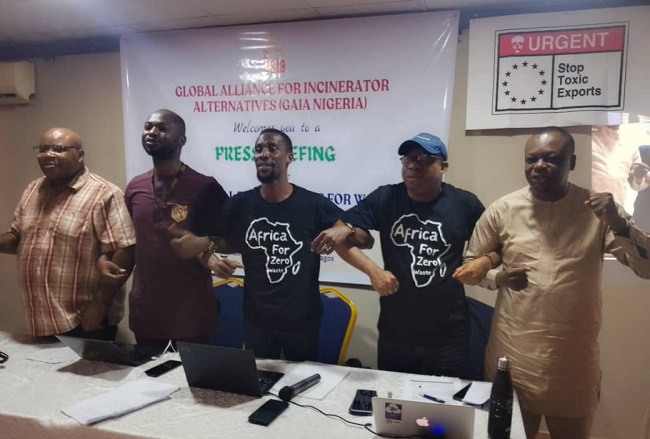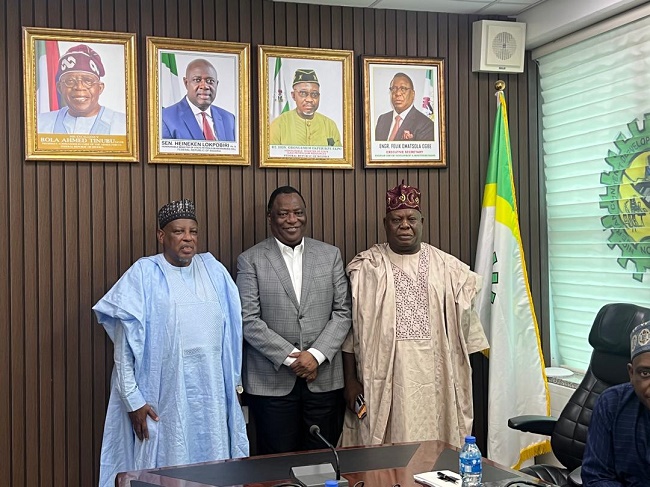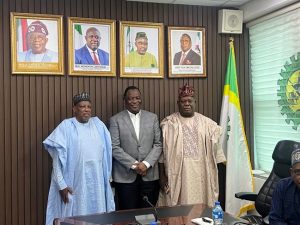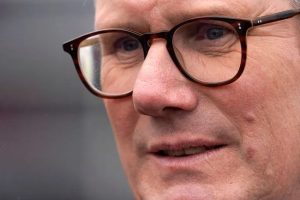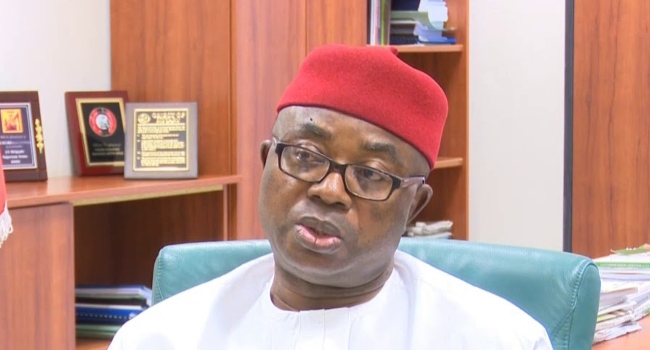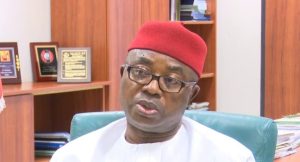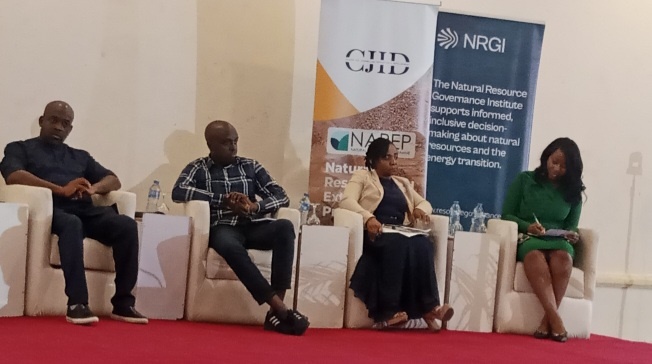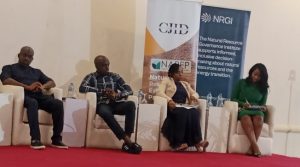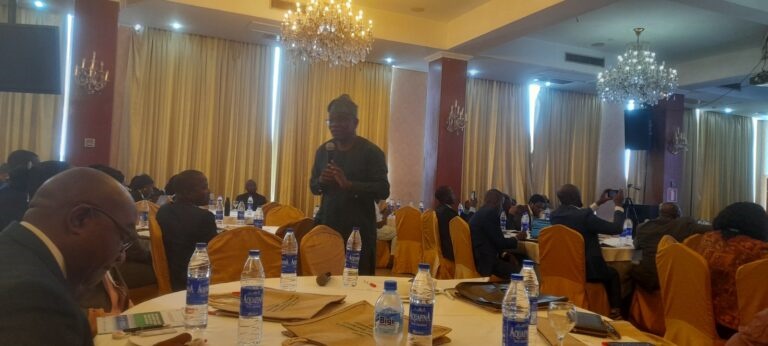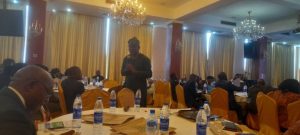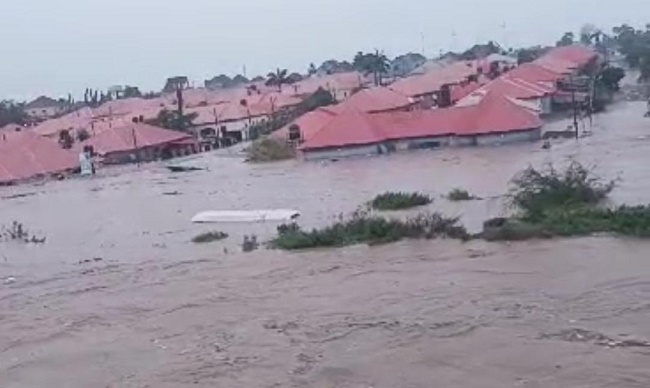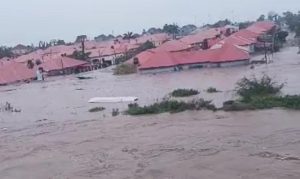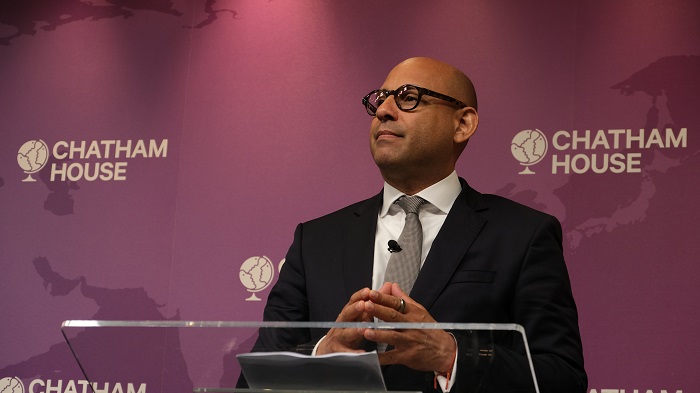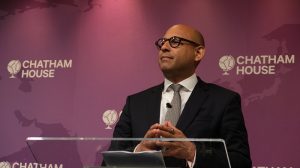A group of civil society organisations (CSOs), operating under the aegis of the Global Alliance for Incinerator Alternatives (GAIA Nigeria), has urged the Lagos State Government to halt its proposed plan to construct a waste-to-energy incinerator plant and adopt sustainable waste management practices instead.
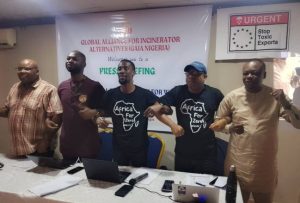
GAIA Nigeria made the call during a press conference held in Lagos on Tuesday, July 23, 2024.
Speaking on behalf of the group, Key Managing Convener at GAIA, Weyinmi Okotie, said the group is concerned about the May 28, 2024, announcement following the MoU signed with a Dutch company on the plan to build a waste-to-energy incinerator in Epe area of the state.
Okotie said: “Incinerators are facilities that treat waste by burning it. They come under many names such as Mass Burn Incinerators, Thermal Treatment Facilities, or so-called Waste to-Energy Plants, and involve processes such as combustion, pyrolysis, gasification, or plasma arc. But they all have the same claim (burning waste will make our waste problems disappear).
“Among the most aggressively promoted incinerators are waste-to-energy facilities. Not only do they claim to make waste disappear, but they also claim to produce energy during the process. But studies have shown that this premise is without scientific basis. The process of incineration merely transforms the waste into other forms of wastes, such as toxic ash and air and water pollution, which are harder to contain and usually more toxic than the original form of the waste. The term is also a misnomer – waste is a highly inefficient fuel, and these facilities are barely able to generate even a small amount of electricity.”
Okotie described GAIA as a global network of over 1,000 organisations fighting for a future free from waste pollution.
“We advocate for a shift away from incineration and towards a ‘zero waste’ approach. This means reducing waste at its source, composting organic materials, and maximising recycling. GAIA supports local efforts to implement these solutions and challenge policies that promote incineration. Our goal is a just and sustainable world where communities are empowered to manage waste responsibly and live in a healthy environment.
“In Nigeria, GAIA members are a total of 11 public interest NGOs/civil societies who are spread across the different cities in Nigeria but are here in Lagos today to solidrise with its Lagos members.”
They include Sustainable Research and Action for Environmental Development (SRADev Nigeria), Pan African Vision for the Environment (PAVE), Sustainable Environment Development Initiative, and Community Development Advocacy Foundation.
Others are Environmental Rights Action/Friends of the Earth Nigeria, Green Knowledge Foundation, Centre for Earth Works (CfEW), Lekeh Development Foundation, Community Action Against Plastic Waste, Policy Alert, Young Farmers Network and Ecocykle.
Dr Leslie Adogame, Executive Director of SRADev and a member of GAIA Nigeria in his submission, said: “When we learned about the Lagos State Government’s plans to build a waste-to-energy municipal incinerator through an MoU signed with the Dutch company, recognising the significance and potential impact of such a project, we immediately sought to engage with the government to understand the situation better. Despite our efforts, it was challenging to obtain clear information or cooperation from the government.
“Projects of this magnitude should adopt a multi-stakeholder approach involving public entities, private sectors, community groups, and CSOs. Unfortunately, it appears that the government did not conduct any consultations, resulting in a project that lacks comprehensive support and sustainability.
“In response to the government’s lack of engagement, we developed and submitted a petition (signed by 146 Public Interest Organisations and 251 Individual Environmental Justice Advocates from 64 countries saying NO to the proposed Waste Incineration Facility in Lagos) on July 1, 2024, the Governor of Lagos State and the Lagos State Ministry of Environment. In our accompanying letter, we expressed our willingness to engage in constructive dialogue and expected an invitation from the government to discuss our concerns.
“However, three weeks have passed without any acknowledgement or response, as it where, it seems that the government is moving so fast with the initiative. As a result, we are left with no choice but to make it known to the world the environmental and health hazards associated with building a waste-to-energy incinerator and to advocate for more sustainable and inclusive waste management solutions.
“We are, however, imploring the state government not to adopt outdated technologies that are being phased out in the Global North. Implementing a waste-to-energy incinerator in Lagos contradicts the city’s aspiration to be a leader in sustainability and innovation, especially with its growing interest and recognition in climate change advocacy. If Lagos adopts this flawed approach, it sets a dangerous precedent for the rest of Nigeria and Africa.
“Moreover, a study by the University of Plymouth in 2012 found that a sea-level rise of just 3 to 9 feet (approximately 1 to 3 meters) would have catastrophic effects on human activities in Lagos, which has an average elevation of only 2 meters above sea level. Adopting waste-to-energy technology in such a vulnerable area poses significant environmental and public health risks. Lagos State should focus on sustainable waste management practices that do not threaten its future or that of its residents. So, we are encouraging Lagos State Government continue to be a part of the climate solution and not part of its own problem,” Adogame posited.
In his submission, Mr Benson Dotun Fasanya, representing CfEW listed some reasons why waste-to-energy incineration is considered a threat to sustainable development.
He said: “Waste-to-energy incineration is expensive and inefficient, emits toxic pollutants, contributes to climate change, undermines sustainable zero waste practices, takes away jobs, and is an environmental injustice.
Mr Akpan Anthony, the Founder/President, PAVE, reading the demands of the group at the news conference, urged the Lagos State Government to impose a moratorium on the building of any waste incineration plants and adopt a zero-waste approach.
“We strongly urge the Lagos State Government to prioritise the implementation of zero waste strategies such as reduction of waste generation, source segregation, recycling, composting, and reuse programmes.
“These approaches prioritise value retention and provide more environmentally friendly and economically efficient options as alternatives to incineration,” said the group.
The CSOs added that it was crucial to invest in research and development of waste management technologies and approaches to prioritise environmental protection, public health, and social equity.
They stressed that products and materials that were difficult to recycle should be phased out from the market and replaced by alternative materials or models of delivery.
The group urged the government to carryout broader consultation with the public and environmental CSOs.
“This comprehensive and transparent consultation process should involve the fenceline communities, environmental CSOs and waste management experts.
“There should be public engagement to accurately inform the public about the potential environmental, social, and health implications of the project on the surrounding communities in Epe and their ecosystems.
“This process should be inclusive and prioritise meaningful, equitable participation of all impacted right holders, upholding Free, Prior, and Informed Consent,” said the group.
The group called for incorporation of waste pickers, waste workers, and fenceline communities throughout the project lifecycle, starting from the development planning stage.
The CSOs urged all concerned citizens, environmental organisations, and stakeholders to join them in the critical fight for a cleaner and healthier Lagos.
“Together, we can make a difference and protect our environment for future generations,” the group said.

The Lagos State Government had hinted on plans to build waste-to-energy plants in Olusosun, Epe and Badagry dumpsites in different parts of the state.
The state’s Commissioner for the Environment and Water Resources, Mr Tokunbo Wahab, revealed this at the waste-to-energy summit, “Driving Environmental Sustainability,” in Lagos.
By Ajibola Adedoye

